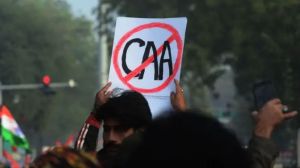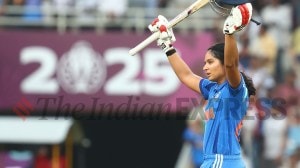The well-drilled SA side now a derelict hulk
IT was Denis Lindsay, one of the now erstwhile International Cricket Council’s match referees, who some years ago said that you cannot ...

IT was Denis Lindsay, one of the now erstwhile International Cricket Council’s match referees, who some years ago said that you cannot hope to win a race with a donkey. He was then coaching a South African provincial team which was in the midst of a crisis and was asked to comment why the side was playing so badly.
Not that the former Test wicketkeeper-batsman wanted to make a complete ass out of the South African coaching system. What he did suggest, however, was that until South Africa’s provinces employ full-time coaches with at least some Test experience, long-term growth to support the Test squad would be going nowhere.
South Africa’s record against Australia this past summer and autumn is 17 matches with 13 defeats, a tied game and three victories; two of those successes were at a stage of the programme where it really did not matter. The Test and limited overs international record proved the most disastrous since the end of isolation. To suggest that the game, in South Africa, is in turmoil less than 12 months before the 2003 World Cup underlines the deep worries within the United Cricket Board.
That the reverses came after a series of victories over Zimbabwe and India, between early September and late November showed that something went radically wrong with the coaching system as well as the mixed messages coming from the selectors. It does not, however, explain the decline in form. Training and pre-match warm-up sessions in Australia were once referred to as being barely little more energetic than those employed by a junior school. It was a matter of going through the motions.
Bookies looking at 2003 World Cup betting options would probably have Australia, perhaps New Zealand and Sri Lanka as long-term projected semi-finalists. The fourth spot? Well, it could be anyone: Pakistan, India or England. On current form, South Africa would be lucky to make the Super Six. That is the current superficial view of where the country’s present strengths lies. Even South Africa’s consolation prize at Newlands earlier in the week, with the aid of the multifarious Duckworth/Lewis method of calculating rain-affected matches, has done little to instil new confidence in a side which has lost the mental strength to even match the Australians.
It could be added that selection policies have added to the creation of a fractured identity and there is little to no consultation among convener Rushdi Magiet, the captain Shaun Pollock and the coaches, Graham Ford and Corrie van Zyl. It would not have happened in Cronje’s time or when Kepler Wessels was in charge. In 1999, however, Cronje and the then convener, Peter Pollock, when running that particular ship of fate, marginalised Woolmer. He was rarely consulted by either about the team’s mental fitness.For one thing, few expected that Australia would employ an effective battering ram to reel off those five comprehensive Test defeats. Out of the wreckage from the last four months the coaching system has failed to match that of the Australians: a thorough and tough selection panel of four, two equally hard-nosed captains and a coaching system which works on the mental, physical side of game as well as the skill requirement need to win matches.
Gerald Majola, UCB’s chief executive officer, has already moved to stop the announcement of a World Cup squad of 25 from being named by the current selectors. He has also called what is considered to be a crisis meeting in a week’s time and which includes players, coaches and administrators.
As it is, there are suggestions that the remaining five selectors are about to be fired (Mike Procter is now an ICC match referee) and the coaching staff could also shortly be seeking employment elsewhere.
What is interesting is that Shaun Pollock is to offer written submissions as he is flying to England before the meeting to play for a county; a case of Nero playing the lyre and composing songs no one will remember while his house is burning.



- 01
- 02
- 03
- 04
- 05




























